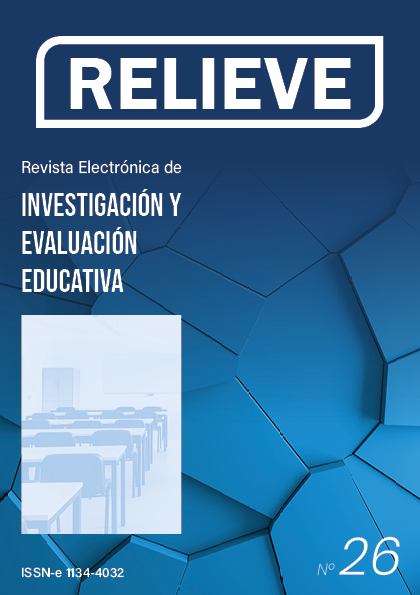Emotional intelligence and participatory practices with the family in early intervention
DOI:
https://doi.org/10.7203/relieve.26.1.13168Keywords:
Early Intervention, Emotional Intelligence, Professional Development, Participatory PracticesAbstract
A current concern in the discipline of Early Intervention is to improve intervention and collaboration with the family, based on appropriate participatory practices. Our objective was to verify if certain emotional intelligence skills, in professionals, can be linked to a greater or lesser exercise of participatory practices with the family. Participated 420 professionals, 25 men and 387 women, from 13 Autonomous Communities of Spain. They completed two instruments: Trait Meta-MoodScale (TMMS-24) from the Salovey and Mayer research group, translated by Fernández-Berrocal and Extremera (2006); Inventory on Professional Practice in Early Intervention (IPPAT), created for this purpose. The results show that Early Care professionals perform participatory practices in their interventions and have high levels of emotional skills. However, we found significant differences in these participatory practices based on their scores on emotional intelligence traits. The results are also discussed in terms of their implications for the training of future professionals in Early Intervention.
Downloads
Downloads
Published
How to Cite
Issue
Section
License
The authors grant non-exclusive rights of exploitation of works published to RELIEVE and consent to be distributed under the Creative Commons Attribution-Noncommercial Use 4.0 International License (CC-BY-NC 4.0), which allows third parties to use the published material whenever the authorship of the work and the source of publication is mentioned, and it is used for non-commercial purposes.
The authors can reach other additional and independent contractual agreements, for the non-exclusive distribution of the version of the work published in this journal (for example, by including it in an institutional repository or publishing it in a book), as long as it is clearly stated that the Original source of publication is this magazine.
Authors are encouraged to disseminate their work after it has been published, through the internet (for example, in institutional archives online or on its website) which can generate interesting exchanges and increase work appointments.
The fact of sending your paper to RELIEVE implies that you accept these conditions.














